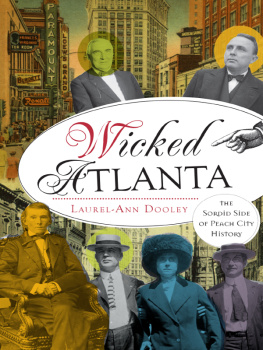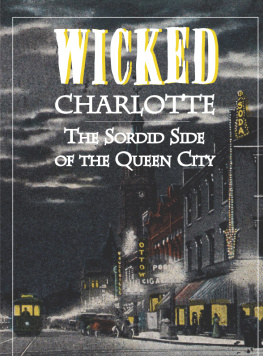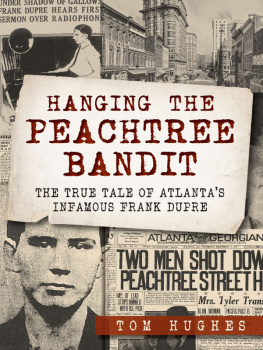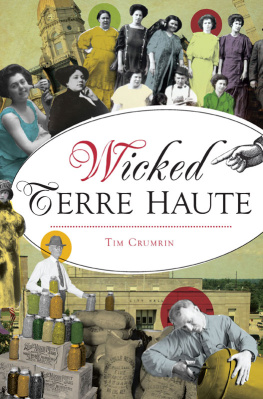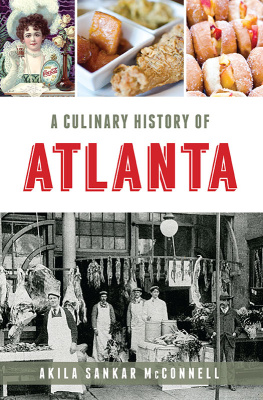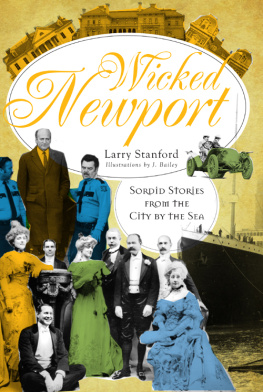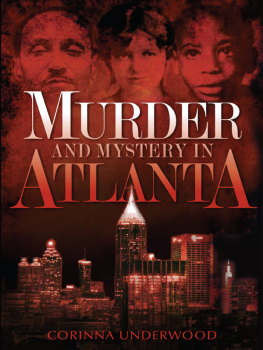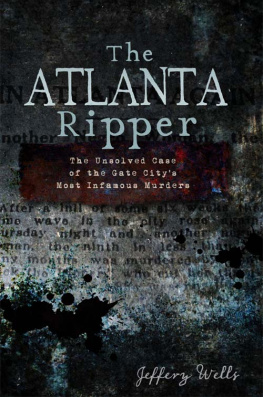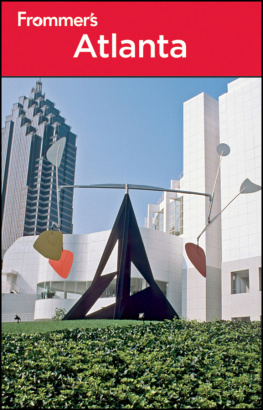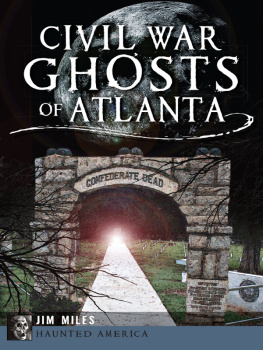

Published by The History Press
Charleston, SC 29403
www.historypress.net
Copyright 2014 by Laurel-Ann Dooley
All rights reserved
Cover image: Lawyers with client. Library of Congress.
First published 2014
e-book edition 2014
ISBN 978.1.62584.558.0
Library of Congress Cataloging-in-Publication Data
Dooley, Laurel-Ann.
Wicked Atlanta : the sordid side of Peach City history / Laurel-Ann Dooley.
pages cm
Includes bibliographical references.
print edition ISBN 978-1-62619-105-1
1. Atlanta (Ga.)--History--Anecdotes. 2. Atlanta (Ga.)--Biography--Anecdotes. 3. Criminals--Georgia--Atlanta--History--Anecdotes. 4. Crime--Georgia--Atlanta--History--Anecdotes. I. Title.
F294.A857D66 2014
975.8231--dc23
2014014547
Notice: The information in this book is true and complete to the best of our knowledge. It is offered without guarantee on the part of the author or The History Press. The author and The History Press disclaim all liability in connection with the use of this book.
All rights reserved. No part of this book may be reproduced or transmitted in any form whatsoever without prior written permission from the publisher except in the case of brief quotations embodied in critical articles and reviews.
To Kevin,
whose love of history ignited one in me,
and whose help with this project allowed the flame to grow.
CONTENTS
ACKNOWLEDGEMENTS
For their generosity and willingness to help in the research, writing and compilation of this book, I am grateful to James Ottley, Kenneth H. Thomas Jr., Elizabeth Cannon and Barbara Dooley.
A heartfelt thank-you to my editor, Chad Rhoad, who backed me from the start and stayed with me to the end.
There would be no book without the resources provided by the Millennial Gate Museum, Atlanta History Center, Digital Library and Archives of Georgia, Buckhead Heritage Society, Atlanta-Fulton County Libraries, Oakland Cemetery, Georgia State University Archives and the Library of Congress.
To my Ponce/Glen Iris peopleI am glad I found you.
And finally, thank you to my family. Your support and encouragement mean the world to me.
Chapter 1
THE BEGINNING
Bars, Brothels and Bad Neighborhoods
Its been known as many things: the Capital of the New South, the Gateway City, the City Too Busy to Hate. A place where business booms and growth is a given. A cradle of gentility, hospitality and soft melodious accents. Atlanta is all of these things.
But it didnt start out that way. In its infancy, Atlanta was a rough-edged frontier town, a Wild West settlement in the heart of the Deep South, known for bars, bordellos and unrestrained lawlessness.
A RAILROAD TOWN ON THE GEORGIA FRONTIER
If Atlantas birth date were to be named, it would be the day in 1837 when, in the heart of present-day downtown, a stake was driven into the red Georgia clay, marking the spot of the future railroad hub of the South.
Prior to that fateful day, Atlanta was just a sparsely populated settlement of about thirty-five families, approximately 253 people in total scattered from present-day Grant Park to Buckhead. It was a span of thirteen milesa long way to go to visit a neighbor, especially by horse-drawn carriage. Far from being on its way to becoming a major city, Atlanta wasnt even headed in the direction of becoming a village. Then came the day that changed everything.
It happened like this: State legislators had started to notice that Georgia was missing out on lucrative trade opportunities to the west. The reason wasnt hard to figure out: there was simply no way to get there. Georgia needed a westbound railroad, and the legislature voted to build one.
The plan was to create a railroad from Georgia to Chattanooga, Tennessee. Two existing railroads, one between Macon and Savannah and the other between Athens and Augusta, would be extended to the new lines endpoint in Georgia.
The question was: where should the endpoint be? To find the optimal site, surveyors were deployed to determine the location. Their quest ended in northern Georgia, just southeast of the Chattahoochee River. They drove a stake into the ground and changed the destiny of that barely settled area forever.
Eager settlers rushed to the promise that a railroad town held, and not just any railroad town, but one that would link a network of rails heading in all four directions. The lure was too much to resist.
A flow of railway workers, fortune hunters, gold prospectors, land speculators and enterprising pioneers poured in. More than three hundred of them were Irish, who mainly came looking for railroad work. The Irish alone more than doubled the population.
It was hot, isolated and not for the faint of heart. After all, it was a frontier town, with all that that implies. Saloons and brothels sprang up quickly, and the settlement soon gained an unsavory reputation as a place of debauchery, where liquor flowed and painted ladies strolled the streets. The typical hallmarks of a growing communityschools, residential neighborhoods, places of worshiptook awhile to take root, at least in any significant number. Indeed, the first tavern opened for business ten years before the first church was built.
As growth continued, the seedier elements became centralized in three areas, all close to todays downtown. Murrells Row was a favorite hangout for thieves, gamblers and prostitutes. It was named for John Murrell, a notorious bandit who ran a thievery network rumored to include hundreds of participants with outposts in Tennessee, Louisiana, Mississippi and Georgia. Whether Murrell ever got as far east as Georgia is unknown, but the name Murrells Row is unquestionably a reference to the lawlessness of the area. Murrells Row started at the intersection of Line, Decatur and Peachtree Streets, todays Five Points, and progressed eastward toward Pryor Street.
Slabtown was the second of the blighted areas. Built largely with abandoned concrete slabs used for construction, it was a red-light district located where Grady Memorial Hospital now stands. Third in the triumvirate was Snake Nation, so named due to the large number of snake oil salesman and the generally bad characters who called it home.
Nothing serves as a reminder that Atlanta was once a frontier town more than the history of its early shanty town settlements in the late 1840s and 1850s, writes author Vivian Price in The History of Dekalb County, Georgia, 18221900. Snake Nation, she says, was devoted almost entirely to the criminal and immoral element. Snake Nation, Murrells Row and Slabtown were pockets where drinking, gambling and brothels were common, and murders were not uncommon.
Arrests were practically pointless because the small wooden jail, measuring only twelve square feet on the outside and eight on the inside, was not sturdy enough to keep anyone locked up for long. About two criminals per day were brought there, and they could easily dig their way out. When there were enough of them, they just flipped the flimsy structure over. Once, when a big uproar had filled the prison, friends of the incarcerated arrived in the middle of the night, lifted the building off its foundation and held it up while the jailed men emerged from underneath.
Noted Atlanta historian Franklin Garrett describes the situation: By 1851, law and order in Atlanta had come perilously close to extinction. The authority of the municipal government was being openly flouted by toughs from Murrells Row and Snake Nation.
Next page
